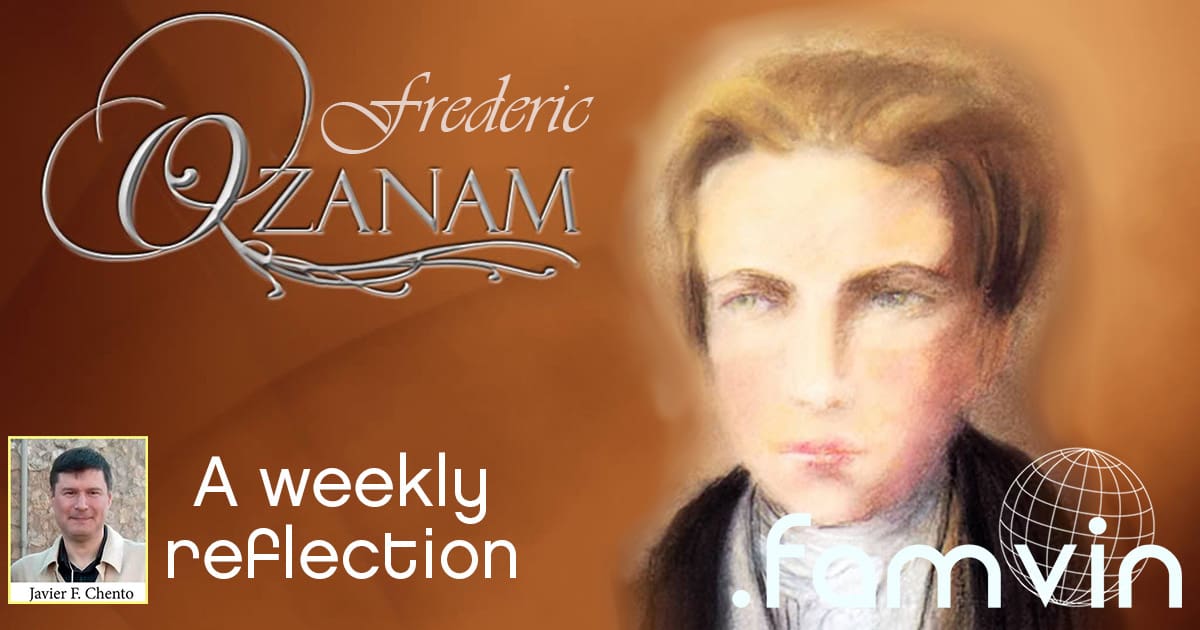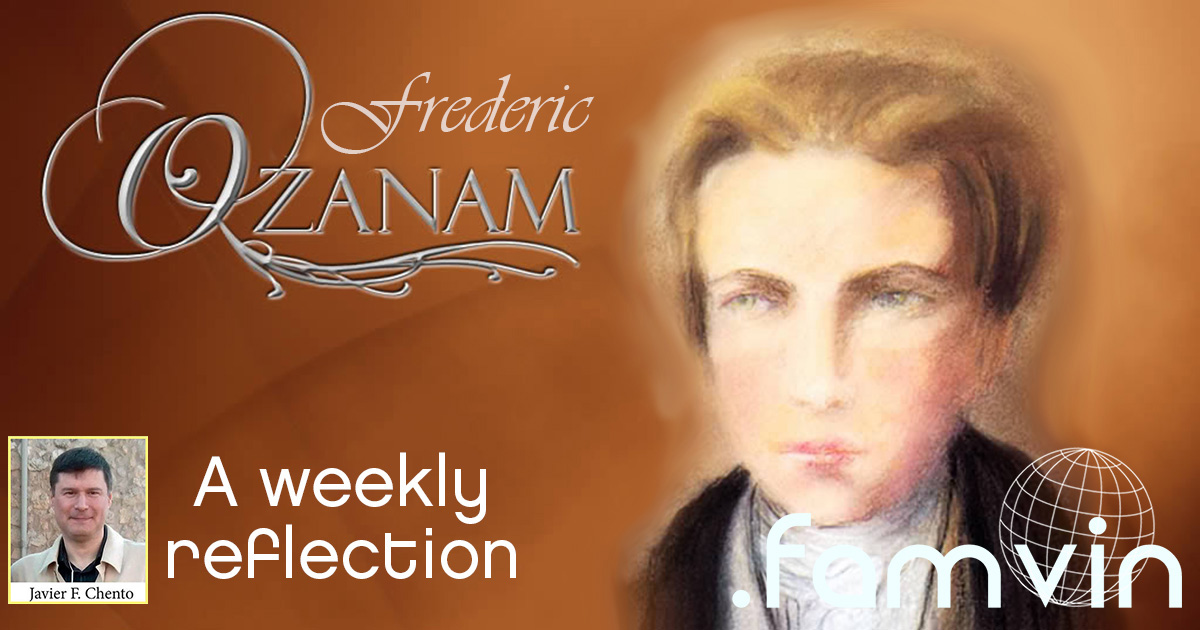Useless Servants • A Weekly Reflection with Ozanam
We are useless servants: such is the testimony that must give those who unite to serve God and men. […]
Not to show ourselves, but let us to be seen: such could be our formula and is, more or less, among the maxims of a great apostle of charity, Saint Francis de Sales. We have had the opportunity to apply and appreciate this doctrine here precisely, because we are surrounded by two kinds of pitfalls: on the one hand, the rivalry of some other pious societies, which are kept secret and which reproach us for not imitating them in that; and on the other, the somewhat expansive zeal of some partners who went everywhere singing praises of our nascent work. The exaggeration of his reports made us suspicious for some and ridiculous in the eyes of others. They prophesied that publicity would be our death, but thank God, the prophets of misfortune were wrong, we became small, we inspired pity and they let us live: our numbers have grown, as well as our alms; through our means we have been able to do some moral good and thus we have distinguished ourselves from purely philanthropic societies.

Frederic Ozanam, “Des dangers de la Charité” [On the dangers of charity], in L’Ère Nouvelle, number of October 29, 1848.
Reflection:
- God does not choose us for what we are worth. God chooses us for what we are. St. Paul reminded the Corinthians thus: “Consider, brothers, how you were called; not many of you are wise by human standards, not many influential, not many from noble families. No, God chose those who by human standards are fools to shame the wise; he chose those who by human standards are weak to shame the strong, those who by human standards are common and contemptible — indeed those who count for nothing — to reduce to nothing all those that do count for something, so that no human being might feel boastful before God” (1 Cor 1:26-29). Also, the portrait we have of the apostles, those closest to Jesus, is of a group of simple people, men who did not stand out for their knowledge or power, but who at Pentecost were transformed by the Holy Spirit to be brave witnesses of the Risen One.
- We are children of God. God is the one who chose us and called us to perform his task in the world. Not for our dignity, but for pure love. Humility is, then, a quality that we have to understand as unworthy recipients of an undeserved gift.
- This does not mean that we should hide ourselves from the world and carry out in secret the mission that God has entrusted to us. “Not to show ourselves, but let us to be seen” is a good synthesis of what Frederic wants to say in this text. We are not going to hide ourselves from the world, but neither should we publicize our works beyond what is necessary for them to be known and promoted, and more join to work in favor of the impoverished.
Questions for dialogue:
- What does the expression “We are useless servants” mean to me?
- How to tell the difference between “show ourselves” and “being seen”? How do we make ourselves seen to the world, with simplicity and humility?
- Do we add the moral and spiritual accompaniment to material assistance?
Javier F. Chento
![]() @javierchento
@javierchento
![]() JavierChento
JavierChento








0 Comments